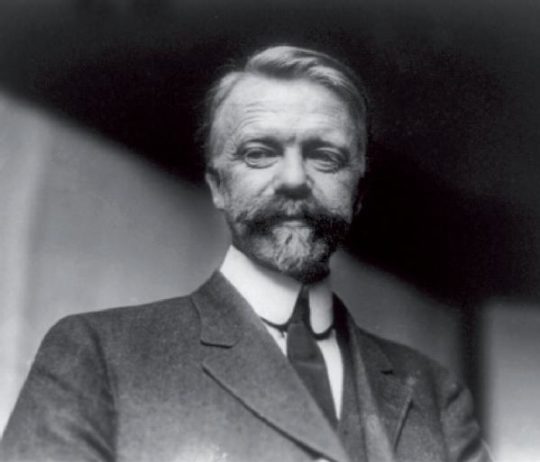The term “Hawthorne” is a term used within several behavioral management theories and is originally derived from the western electric company’s large factory complex named Hawthorne works. Starting in 1905 and operating until 1983, Hawthorne works had 45,000 employees and it produced a wide variety of consumer products, including telephone equipment, refrigerators and electric fans. As a result, Hawthorne works is well-known for its enormous output of telephone equipment and most importantly for its industrial experiments and studies carried out. Hawthorne Experiment by Elton Mayo In 1927, a group of researchers led by Elton Mayo and Fritz Roethlisberger of the Harvard Business School were invited to join in the studies at the Hawthorne Works of Western Electric Company, Chicago. The experiment lasted up to 1932. The Hawthorne Experiment brought out that the productivity of the employees is not the function of only physical conditions of work and money wages paid Continue reading
Management Concepts
Definition and nature of a company
A company can be defined as a group of persons associated together for the purpose of carrying on a business, with a view to earn profits. The word ‘Company’ is an amalgamation of the Latin word ‘Com’ meaning “with or together” and ‘Pains’ meaning “bread”. Thus, a company is nothing but a group of persons who have come together or who have contributed money for some common person and who have incorporated themselves into a distinct legal entity in the form of a company for that purpose. There is very good definition by Lord Justice Lindey, “A company is an association of many persons who contribute money or money’s worth to a common stock and employ it in some trade or business and who share the profit and loss arising there from. The common stock so contributed is denoted in money and is the capital of the company. The persons Continue reading
History of Management Practices
The history of management is a long-standing one, with human life comes the need to manage and control. Looking back through time, one can easily see from where the idea of management developed, grew, and turned into what people know as the modern form of management. In current time, managers are often thought of as sitting in a cushy office wearing a suit and tie, but little do most know that today’s managers have stemmed from ancient Egypt, China, and even back to the paleolithic times. Management has existed for as long as humanity and it will most likely only continue to further evolve, grow with the time, and fit into more modern aspects of managing. The origins of management are quite a long historical timeline. The earliest recorded occurrence of information related to management dates to the world’s first civilization, Sumer. Sumer was a thriving civilization that created a Continue reading
Forms and Types of Business Entities
Business can be defined as an organization that provide goods and services to others, who want to do or need them, when people think of business careers, they have to think of job in large wealthy corporation, there are wide verity of career areas in business line. Business Entity is an organization that possesses a separate existence for tax purposes. Some types of business entities include corporations and foreign corporations, business trusts, limited liability companies, and limited partnerships The two basic types of business entities are sole proprietorship and partnerships. Sole Proprietorship Sole proprietorship type of business entity which legally has no separate existence from its owner. Limitations of liability enjoyed by a corporation and limited liability partnerships do not apply to sole proprietors. Also debts of the business are debts of the owner in the case of sole proprietorship type of business. A sole proprietorship essentially refers to a Continue reading
Henri Fayol – Father of Modern Management Theory
Henri Fayol was a French industrialist and manager, working in the mine industry and looking for applicable solution to business management. He went to school in Lyon (the second largest city of France) and enrolled at the engineering school of Saint-Etienne (Ecole Nationale des Mines). He received an education as a mine engineer and graduated in 1860 from this school at the age of 19. He was first employed as an engineer at Boigues, Rambourg and Co. In 1874, this company became Commentry-Fourchambault SA or Comambault). It is important to notice he spend all his professional life in the same company experiencing its expansion and knowing well its structure and production methods. Fayol was first remarked as an engineer when he wrote a paper proposing a solution to fire hazard, fire fitting and spontaneous combustion in mine, destructing men and installations. In 1866, he was appointed director of a single Continue reading
Conceptual Perspectives on Management
Management has become a part and parcel of everyday life, be it at home, in the office or factory and in government. In all organizations, where group of human beings assemble for a common purpose, management principles come into play through the management of resources, finance and planning, priorities, policies and practice. Management is a systematic way of carrying out activities in any field of human effort. Efficacious and effective management is not possible without in-depth knowledge of the organisation which is being managed. Organisational knowledge is absolutely critical to building, preserving and leveraging institutional excellence. It is like the air you breathe-you cannot measure it, touch it, or see it but you cannot survive without it. The basic elements of management are always there whether we manage our lives or our business. In fact, management is used knowingly or unknowingly by everybody born as human being on this earth. Continue reading

